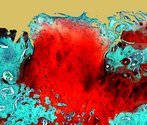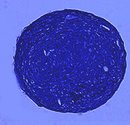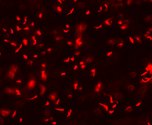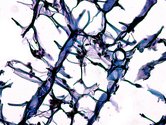



Chair of Experimental Orthopaedics and Osteoarthritis Research
The Chair of Experimental Orthopaedics and Osteoarthritis Research at the Saarland University represents the first Chair of its kind in Germany. Its origin lies in the foundation of the "Laboratory for Experimental Orthopaedics" at the Department of Orthopaedic Surgery, Medical Faculty of Saarland University, in 2000 through the initiative of the Chairman of the Department, Prof. Dr. med. Dieter Kohn. In October 2009, the laboratory was elevated to the Chair of Experimental Orthopaedics and Osteoarthritis Research at the Saarland University. Together with the Christa Huberti Endowed Chair of Experimental Orthopaedics and Osteoarthritis Research, the chair was mainly supported in the years 2009 - 2014 through the foundation "Deutsche Arthrose-Hilfe e.V." We are very grateful to all its members and donors who enabled the creation of this chair. Since 2014, the Center of Experimental Orthopaedics is supported through central funds of the Saarland University.
The aim of our work is to translate basic scientific discoveries into clinical applications in orthopaedic surgery. New therapies in modern orthopaedic surgery have significantly improved the quality of life in the past decades. The implantation of endoprostheses enables many patients with osteoarthritis to be active on a high level and to have a good quality of live over several years. However, the lifespan of endoprostheses is limited. In particular, the implantation of endoprostheses in young patients is an unsolved problem in orthopaedic surgery. We investigate new strategies to regenerate damaged articular cartilage and other musculoskeletal tissues to restore the original functionality. The focus of our experimental work is to study the basic processes in cartilage development and regeneration. Based on clinical needs, we are developing molecular therapies for the treatment of focal cartilage defects in non-osteoarthritic joints, meniscal lesions and osteoarthritis. Another part of our research involves the development of tissue engineered articular cartilage. Using gene transfer technologies, the function of tissue-engineered cartilage can be improved. Our aim for the future is to develop improved therapeutic strategies for articular cartilage defects, meniscal lesions and osteoarthritis based on developments in stem cell research, gene transfer, and tissue engineering. Our research is conducted in close cooperation with local, national, and international collaborators and funded by the Deutsche Forschungsgemeinschaft (DFG), the Deutsche Arthrosehilfe (DAH), the AO Foundation (AO), and the Deutschsprachige Arbeitsgemeinschaft für Arthroskopie (AGA), among others.
These experimental therapeutic strategies complement the different clinical treatments for articular cartilage defects and meniscal lesions which are offered in outpatient clinics for reconstructive cartilage and meniscal surgery at the Department of Orthopaedic Surgery by the chair, Prof. Dr. med. Henning Madry. Our work is in tight cooperation with the Department of Orthopaedic Surgery (director: Prof. Dr. med. Stefan Landgraeber).




